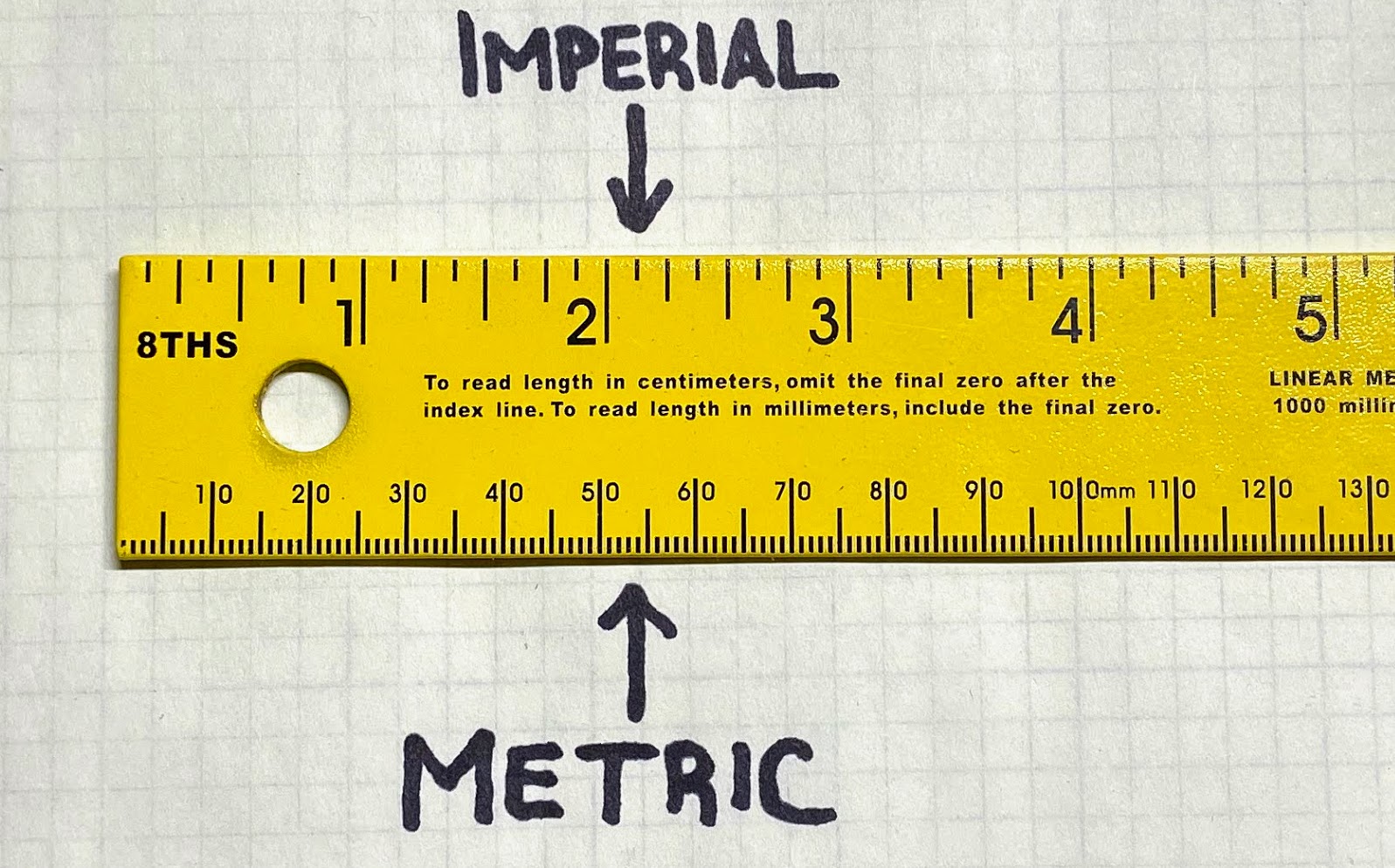Unit Conversions
Units. They give meaning to math. They mark the transition between “math for math’s sake” and science. Unfortunately, the Tower of Babel applies to more than just language. For each possible measurement, there exists practically infinite number of equivalent representations. One man’s 4184 Joules is another man’s Dietary Calorie… and they both could run a 60 Watt light bulb for about a minute.
As I wrote about in my article on base dimensions, the scientific community prefers using Metric System, a.k.a. “SI” units. Most of the time you’re doing unit conversions, those will be involved; but regardless of the units at play, the procedure is the same.
👉 Unit Conversion is nothing but multiplying by 1 in fancy ways
A Handy Effect of the Multiplicative Identity Property
The Multiplicative Identity Property, one of the core axioms that make up algebra, states that any number, when multiplied by one, has a result equal to itself. By extension, anything divided by itself equals one (a.k.a. the Multiplicative Inverse Property).
Take that fact in concert with things humans agree are equal by definition, and you have everything you need.
\[12_{inches} = 1_{foot}\]Through simple algebra, you can divide either side by the other, and you get one.
\[\frac{12_{inches}}{1_{foot}} = \frac{1_{foot}}{12_{inches}} = 1\]This means you can multiple literally anything by 12 inches/foot or by 1/12 foot/inches and have a valid result. So, the trick is to find ways to make the units cancel. You do this by getting them in both the numerator and denominator.

Example
To convert 215lbs into Kilograms:
\[215_{lbs}\]We want that in Kilograms. They both measure mass, so an equivalency does exist. Looking up a conversion factor, you’d find 1 Kilogram is 2.205 pounds.
\[2.205_{lbs} = 1_{kg}\]In order to have pounds cancel out, we need to get it to the denominator. So we divide 1 Kilogram by the 2.205 pounds.
\[\frac{1_{kg}}{2.205_{lbs}}=1\]This is our fancy “one”. We’re going to multiply the number stated in the problem by this.
\[215_{lbs}\times\frac{1_{kg}}{2.205_{lbs}}\]For those of you who may be still learning algebra, that’s the same as writing this:
\[\frac{215_{lbs}\times1_{kg}}{2.205_{lbs}} = 97.50567_{kg}\]From there, the “lbs” cancel. What’s left is 215/2.205 Kilograms, or ~97.5kg.
